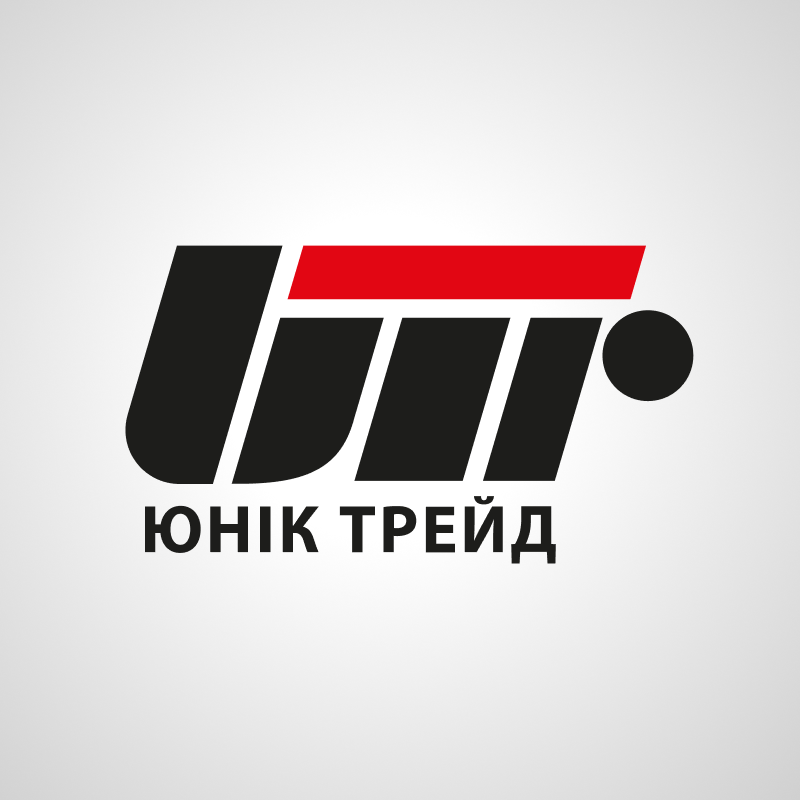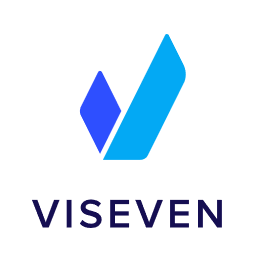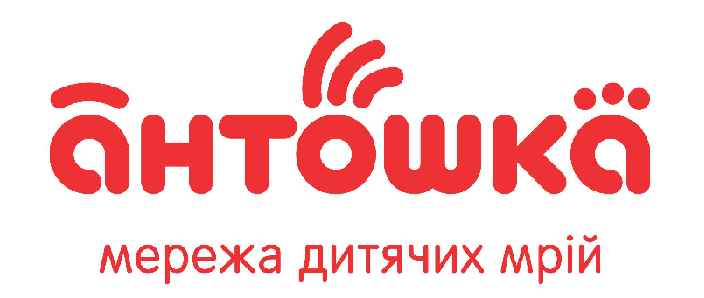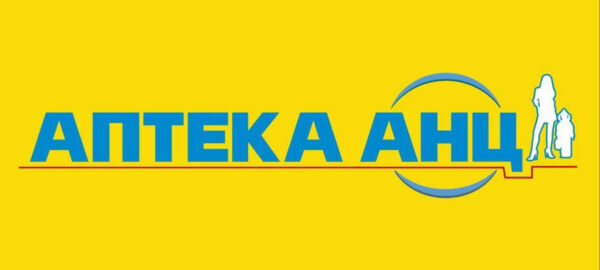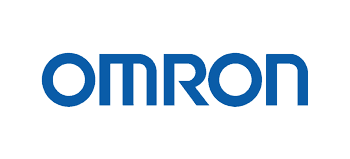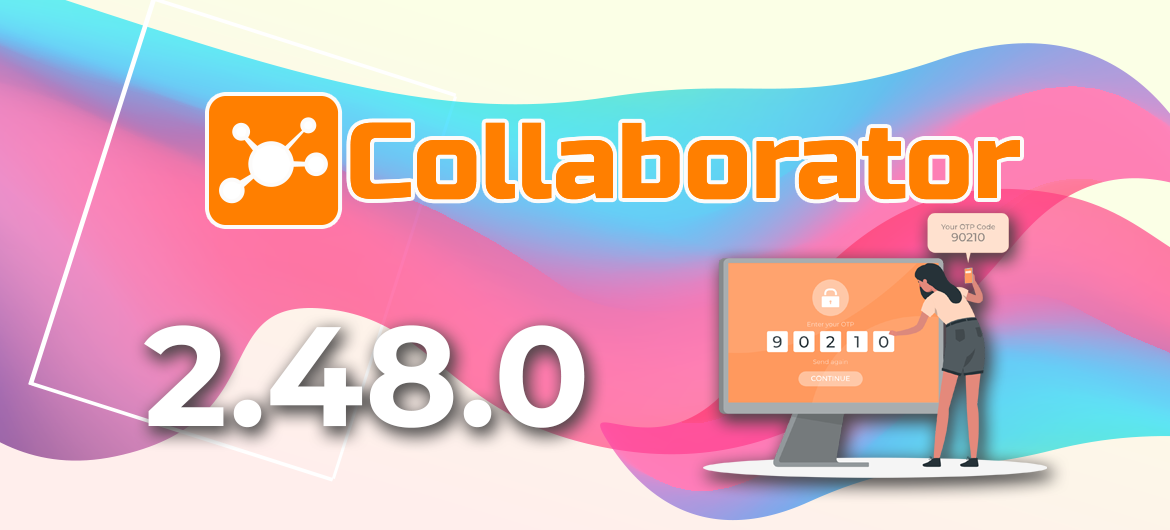
LMS Collaborator 2.48.0 – One-time password authorization, video covers, customization of information blocks content for individual roles and other updates
Meet the new version – LMS Collaborator v.2.48.0!
1. Log in with a one-time password
If you have forgotten your LMS Collaborator password, you can recover it via email or use the new one-time password feature. This is very convenient when you don’t have access to email and need to log in safely and quickly. This method also ensures security for users who do not have an email address, as it allows you to verify your identity before logging in.
How does it work? All you need to do is provide the phone number that is linked to your training account.

After that, you will receive a message with a one-time access code via SMS or another communication channel that is connected to the system.

Please note! To make this feature work, you need to enable it in the system settings – the “Policies” tab. This can be done by the administrator of the learning portal.
You can see which users have requested a one-time password in the message log.
2. Video covers
The cover is the first thing users notice when they see a video. It gives an idea of what the video is about, demonstrates its theme and style.
Now you can add covers to your video resources in LMS Collaborator to create an attractive look and encourage people to watch them faster.
The most popular image formats are available for your convenience: jpg, png, jpeg, gif, svg, webp.
After adding the cover, you can preview how the video will look like:

3. Customizing the content of the information block for each role
The main page of the LMS Collaborator portal is formed of widgets, the display and location of which can be customized separately for each role. One of these widgets is the information block. You can add any information to it:
- buttons for quick access to important sections of the portal,
- video message from the management,
- links to resources from the Knowledge Base,
- surveys for feedback,
- other text and graphic elements.
In addition to display, you can personalize the content of the information block for each role in the system. For example, managers will see buttons to access management tools, teachers will see forums, a list of courses, an evaluation page, and employees will see a knowledge base, a catalog, and other important sections.

4. New message template for managers
It’s important for managers to see the big picture of the learning tasks performed in a team. This allows you to control the process of implementation and provide timely assistance to subordinates when necessary.
To avoid wasting time collecting information about the tasks of subordinates, we’ve added a new message template for managers.
Organizational and functional managers will receive an email from the system with a list of tasks that have been assigned to their subordinates over the past day.

This report message will be sent only when new data is available. If none of the subordinates has received a task during the day, no email will be sent to the manager.
5. Fields with organizational structure unit and managers in contacts
The Contacts section contains a list of all employees who are studying at the company. Here you can find the necessary information about a particular employee, such as their phone number, email, date of birth, position, etc.
We’ve expanded the information on users by adding two new fields to their cards. Now you can also view the employee’s manager and the department in the organizational structure to which they belong.

When you click on these options, you will automatically go to the page with detailed information about the manager or department.
6. Recording the result of a course that is part of a program
Depending on your goals, you can create various training programs in LMS Collaborator: product, compliance, onboarding, etc. Such programs can be formed from different types of training content, including one or more courses. When you update the composition of such courses, the employee who has already completed it returns to the “in progress” status, as new elements have appeared in it that need to be completed.
This is very convenient for product programs, programs on business processes, regulations, or regulatory documents. But there are programs that are designed to be completed once – for example, for the adaptation of newcomers. For them, you can enable the function of recording the result:

After that, the result and the status of the task will be recorded and will not be changed by the system until the employee takes the course again.
If they decide to do so, a warning will appear on the screen warning them that retaking the course will change their results and that they need to take only the new course materials.

7. Career development requests – Adding external activities to a personal development plan
In addition to corporate training, LMS Collaborator also allows you to organize the career development of employees. In the system, managers can post a list of positions with a list of requirements for obtaining them. Employees, in turn, can apply for advanced training and a new position.
In addition, in the application, the employee can indicate external or internal training activities that will help them improve the necessary competencies required for the future position.

Once the application is approved by the manager, external events can be added to the employee’s individual development plan. We have improved and automated this process. Now you can do it right in the application by clicking on the necessary button:

The completed personal task will open in a new tab, where these parameters will already be specified. All you need to do is add the necessary additional data, if any, and save.
8. Role management – Update settings for test management
In LMS Collaborator, you can configure a set of rights for each user role to manage different functionality. Combining them allows you to flexibly customize access to the portal’s capabilities, forming functional roles – manager, trainer, administrator, etc.
For more flexible customization of access to tests, the following rights are now available:
- Check answers to free-response questions – allows viewing and checking free answers to all tests in the system;
- Check answers to free-response questions for your tasks – allows you to view and check free answers to tests in which you are the author;
- Manage test attempts – allows you to view and confirm test attempt requests for all users of the system;
- Manage test attempts for your subordinates – allows viewing and confirming test attempt requests only for your subordinates;
- Manage test attempts for your tests – allows viewing and approving test attempt requests only for tests that you are the author of;
- Manage tests – allows creating new tests, viewing, editing and assigning all published tests in the system to other users;
- Manage only your own tests – allows creating new tests, editing and assigning tests where you are the author to other users;
- List results from tests – allows you to update the results of user tests after making changes to it.
9. Updates for personal development plans
In LMS Collaborator, you can create personal development plans (PDPs) for your employees. Fill them with various learning tasks: tests, surveys, courses, etc. And also add any other individual tasks.
Read more about Personal development plans for LMS Collaborator
In this version, we’ve updated the look and feel of personal development plans, making them even more convenient.
What’s new?
1. The page for adding personal tasks to the PDP has been updated.
The description and content of the task were combined into one item, and the page was made more compact by changing the arrangement of the blocks.

2. My personal plan.
Users can now sort their tasks by execution status using built-in filters. Also, the appearance of the block with the progress of the PDP has changed.

3. Update for managers.
A new field is now available where managers, administrators, or HR can add a description to their employee’s personal plan.

4. Checking personal plans.
Updated the page for checking personal plans. Added filters for sorting tasks by execution status, as well as a filter by performer

Read about the previous version of LMS Collaborator 2.47.0 here





